Before discussing how to face an interview confidently, you first need to understand what interviews entail. Interviews are defined as a “meeting of persons face to face, especially for purposes of consultation; oral examination of a candidate for employment, etc.” An interview has now become a crucial criterion for selecting individuals at all levels – managerial, executive, officers, etc., in government, semi-government, and private sector organizations.
The Objective of the Interview:
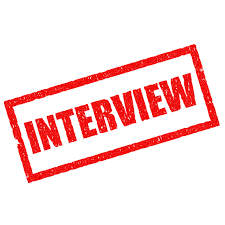
Interviews are defined as the process of evaluating individuals to assess their suitability for a particular role or position.
In the face of rising competition and the universal demand for excellence, relying solely on written tests to judge one’s ability is insufficient. While written tests offer insights into a candidate’s knowledge, they do not indicate their intricacies, personality traits, behavioral patterns, reactions to uncommon situations, and so forth.
Your objective when facing an interview is important. Let’s get into the key aspects you should consider.
Interview Technique :
Before discussing how to face an interview confidently, you need to understand interview techniques. Interviews are defined as the technique involved in a natural, purposeful, structured, and spontaneous cross-examination through healthy conversation. An interview is never just a question-answer session.
The main feature of an interview is the observation of verbal and non-verbal responses. Verbal responses include the manner of speaking, accent, and articulation of answers. Non-verbal responses encompass attire, gestures, body movements, and overall body language. These responses are carefully observed, noted, and assessed against the requirements of the job or course.
Category of Interviews :
The following are in general categories of the interviews.
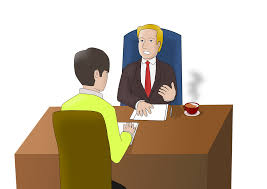
- Screening Interviews
- Walk-in interviews
- Panel or Board Interview
- Series interviews
- Campus Interviews
Screening Interviews :
The purpose of this activity is to screen a large number of candidates, retaining the prospective ones while disqualifying the mediocre ones.
Walk-in Interviews :
Walk-in Interviews are common for most companies to recruit middle or low-level staff for temporary or permanent jobs. The candidates are invited personally according to a predetermined date, time, and Venue. In such interviews, the selection is usually made on the spot.
Panel Interviews :
The Panel or Board interviews are simply face-to-face interviews, done to recruit for public or private sector undertakings, teaching or research institutions, and institutions offering highly specialized courses. A panel of members, taken from specialized areas such as management, finance, and engineering for candidates interview. Such an interview is presided over by a nominee of the organization.
Series Interviews :
Some prominent organizations may conduct multiple interviews with a candidate, each time involving a different board of interviewers. The individual reports from the interviewers are then analyzed and compared to determine the suitability of the candidate.
Related: 100+ Quality Assurance Interview Questions Pharma
Campus Interviews :
Nowadays, campus interviews have become very common. Some major organizations select candidates during their final semester in engineering, medical, pharmacy, management institutes, etc., directly from the campus of these institutes.
Role of the Interviewer :
In an interview, the person who conducts it is called the interviewer. The interviewer is like the leader of the interview. They start it, guide the conversation, evaluate the candidate’s answers, and decide if the person is a good fit for the position.
Just like how a person being interviewed should get ready, the interviewer also needs to prepare. They advertise the job, review resumes, choose the best candidates, and then invite them for an interview. Before the interview, the interviewer plans the questions and how the interview will go. They want to make sure everything is friendly and they pick the right person for the job.
During the interview, the interviewer asks about things like education, family, career goals, and work experience mentioned in the resume. They want to make sure the candidates are smart, hardworking, ready for challenges, have a positive attitude, and are fully committed to their job.
The interviewer also shares details about the company with the person being interviewed. A good interviewer makes the interviewee feel comfortable, builds a good relationship, and boosts their confidence. They start with simple and casual questions to help the candidate relax. A good interviewer doesn’t ask confusing or irrelevant questions and is direct and fair in their evaluation. They aim to be friendly and unbiased throughout the interview.
Role of Interviewee :
The person being interviewed is the one facing the interview. They should be honest in how they approach it. They need to collect all the things like certificates and other papers related to the job or courses they want. They should dress appropriately and show politeness, courtesy, and patience. Before answering questions, they should think carefully.
They should give the information that’s asked for in a clear way. They should show enthusiasm and honesty in their approach. In summary, they should make themselves a good choice for the position.
Organization Overview :
Once you know the vacancy, you must have basic knowledge about the organization in which you intend to work. Some other information regarding Promotion, regular salary increments, Job security, and other long-term benefits will be helpful for the career built-up. Yellow pages, Industrial Magazines, Stock exchanges, indexes of industries, Employee handbooks, and Marketing brochures can provide you with information about the organization.
You can ask your friends and relatives working in an organization if it, is right to join the organization. You may apply only when You meet the minimum criteria of Qualification and Experience. Job makes your career, Job provides you the opportunity of learning and development, Job has Market Value, Satisfactory Salary, and other Benefits, You are temperamentally and intellectually suitable for the Job.
Preparation of BIO-DATA :
Bio-data or Curriculum Vitae (CV) or Resume is the first contact between Employer and Employee. It is the shortest information about Education, Experimental, and other activities and specialties. It is a mirror of one’s personality.
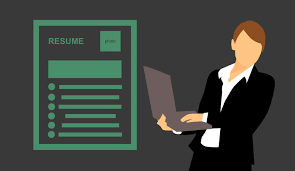
Bio-Data must have the following silent features :
- Name
- Permanent and Correspondence address with Telephone No. or E-mail
- Qualification: Since S.S.C. with School, College Name, Board, University, Year of Passing, Class, or Order of Merit.
- Experience: Start from present to last organization, Name, and Address of organization, Post held, Duration, Reason for leaving the organization. Project Undertaken,
- Special interest,
- Concise and well-organized information, Date of Birth and Marital Status,
- Languages Known: Can read, Write and Speak and Understand,
- Any saving is done by you in the past organization,
- Documentation and Machine knowledge,
- Regulatory Liaison Experience and Regulatory and Non-regulatory Audits Faced.
- Passport Number, Driving Licence Number for foreign Emplacements,
- Responsibilities that you have shouldered in a past organization,
- Religion and status of marriage.
- Expected Salary.
- References of at least two well-known Persons who know you better.
- Signature, Date, and Place.
- Bio-data should be typed or well handwritten.
- It should be free of Spelling mistakes, Grammatical, and Typographical mistakes.
Enclosed Documents and Covering Letter :
All the documents that are demanded by the organization in the advertisement shall be enclosed with the application. Usually, the following documents may be asked Copy or References of Advertisements.
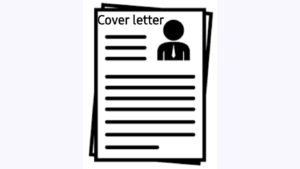
- Photocopies of Birthdate proof certificates
- Photocopies of Educational Qualification and Experience certificates.
- No Objection Certificates from the present employer
- Letter of recommendation if Any
- Letter of Approval from State or Central Licensing Authority.
- Enclose the documents serially as per the BIO-DATA sequence and Prepare the Covering Letter to enclose BIO-DATA and Supporting Documents with the cover letter.
- The cover Letter shall be Short and to the Point, and Formal. The Letter could end with the expression of the hope of receiving a favorable response.
Preparation for face-to-face Interview
- Once you send your resume to the company, they will review it and choose candidates whose experience and qualifications match their requirements. If you’re selected, they will send you a call letter. Keep in mind that this process takes some time, so don’t forget about the call letter. During this waiting period, get ready for the interview.
- Typically, interviews cover topics like your name, family background, information about the company, your field of work, specialization, your current job, strengths and weaknesses, dislikes, career goals, reasons for leaving your current job, and why you want to join their organization. They may also ask about your contribution to the company and your expected salary.
- Interview questions aim to explore your personality, assess your knowledge, and gauge your presence of mind, intelligence, and awareness. They may also test how well you handle stress. Some questions are meant to verify the information you provided in your resume. Be prepared for a thorough discussion during the interview.
Tips for Interview :
- When talking about yourself, share your education level, achievements, current situation (like your job or course), and the career path you’ve chosen or plan to follow. Let your answers reflect your enthusiasm, sincerity, and positive attitude.
- When discussing your family, provide a brief overview of where they are and what they do. Highlight their contributions to shaping your personality. Paint a positive picture of them. If asked about your improvements in your current job, talk about implementing new technology, achievements, and any promotions earned through outstanding work and job training.
- Extra responsibilities are given to you because of your efficiency and capabilities. Frame your response to show that the organization you want to join will benefit from your performance and achievements. When explaining your current job, avoid speaking negatively about your boss, job, or organization. Instead, highlight the positive experience gained and your desire for more responsibility.
- Express that you see greater opportunities for progress and that you possess the qualifications, experience, and skills the organization is looking for. If faced with tricky, sarcastic, or vague questions, stay calm, think it through, and respond with cleverness, straightforwardness, and poise.
Documents for Interview :
Before facing the interview, make sure to bring essential original documents with you. Here is a list of documents you should have during the interview.
- Interview Call Letter.
- Copy of the Advertisement.
- Copy of Bio-Data and Application.
- Degree Certificates, Proof of Birthdate, Marks memos, etc.
- Letter of Recommendation.
- Passport Size Photographs.
- No objection Certificates from the Present Employer.
- Organizational Information.
- Any other certificates mentioned in Bio-data.
- Police Clearance certificated for Overseas Appointments.
- Passport for Overseas Appointments.Experience Certificates.
Besides that, make sure you have these things with you: plain papers, pens, visiting cards, safety pins, carbon papers, clips, rubber bands, envelopes, postage tickets, and so on.
Dress and Appearance :
- Wearing the right clothes and presenting yourself well is crucial for interviews. Your outfit reflects your personality and shows your respect for the occasion and interviewers.
- For guys in a pharmaceutical organization, a good choice is black pants, a white shirt, a tie, well-polished shoes, and clean socks. Keep it simple and avoid flashy colors. Avoid jeans, T-shirts, slippers, and chappals. Suits are suitable for higher positions and overseas jobs.
- Men should wear plain, light-colored, well-ironed shirts with matching dark-colored trousers. If the weather allows, add a tie. Your shoes should match your outfit, and avoid wearing goggles.
- For women, avoid tight or short dresses. Opt for a conservative and formal dress like a saree or a suit. Steer clear of high-heeled shoes or sandals. Skip intense dark makeup and flashy accessories. Your hairstyle should match your dress and personality.
- Both men and women should maintain a neat appearance. A clean, short beard or mustache for men, well-shaved preferably, and well-combed or turbaned hair. Women can go for light makeup but minimal on jewelry. Keep your nails clean and short. A cheerful look with a soft smile leaves a lasting impression.
- Remember, looks speak louder than words. Be well-groomed, composed, enthusiastic, confident, mentally alert, and exuberant. All these positive traits make a lasting impression. To avoid any last-minute rush, visit the interview place before the interview date and reach there at least half an hour early.
Note: Your dress and personality play a significant role in face-to-face interviews.
While Walk to an organization to face an interview:
When you get to the interview location early, introduce yourself to the receptionist or the person in charge so they know you’re there. Then, patiently wait for your turn to go into the interview room. While waiting, you can read magazines or other materials available in the waiting area. It’s a good idea to stay focused and maybe say a quiet prayer to stay energized.
Avoid Nervousness:
Feeling nervous is normal, but getting nervous is risky. It makes you lose confidence, become impatient, shaky, and unable to think clearly. So, try to avoid getting nervous.
Before the interview, try walking briskly, take deep breaths, and do some stretching. This helps relieve tension in your hands and feet. Remember, if you’re nervous, the interviewers might be nervous too because they’re human too! They have the challenging task of selecting the right candidates for the organization. So, no need to worry – we’re all in the same boat!
Steps to follow while Interview: Body Gasture, movement
When it’s your turn, politely tap on the door and go inside. Don’t peek into the room before entering; it might make you seem unsure. It’s better to request permission to come in. Enter the room calmly, at a steady pace, and sincerely with careful steps.
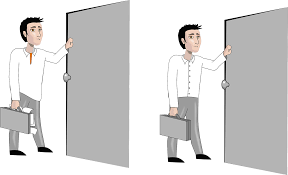
When entering a room, close the door gently. Before sitting, say “Good morning” or whatever fits the time of day. Don’t start the handshake, but if offered, shake hands confidently with eye contact. Keep it firm but short.
Remember, a handshake shows friendliness in a face-to-face interview and should come with a smile. Don’t sit without permission. Put your handbag on the floor. Sit when told to. Let the interviewer begin the conversation.
If it’s a panel interview, the chairperson usually introduces the others. The start of an interview aims to ease you with simple questions about the weather, travel, or traffic. Answer these briefly.
Then comes the main interview with questions about your qualifications, family, work experience, achievements, weaknesses, reasons for changing jobs, and how you’ll contribute to the organization. Be honest and brief.
In an interview, your body language is observed, so be aware that you’re constantly being watched, and your reactions are being evaluated.
Following are some points on body language during interview time:
- While talking, make eye contact.
- Sit with a slightly forward lean, with elbows resting on the table, if necessary, and put your hands in a natural and comfortable position.
- Speak with a slight smile adorning the face.
- Keep a cool, controlled, distinct voice with a usual accent.
- Control movements of hands and fingers.
- Overall, body posture should neither be too stiff nor too relaxed.
- Maintain a confident, self-assured style.
Following manners and gestures must be avoided during the face-to-face interview:
- Scratching yourself.
- Leaning back.
- Speaking in whispers or hushed tones.
- Folding arms or crossing legs.
- Losing patience and arguing unnecessarily.
- Remaining too reserved or too arrogant.
- Giggling and mumbling.
- Smoking during the Interview.
7 Quick Tipes for Interview:
- Research the company and the role you are applying for
- Prepare for common interview questions as per the job applying for
- Practice active listening and good communication skills
- Dress appropriately
- Be positive and confident
- Ask questions about the company and their vision
- Follow up after the interview
Related: Technical Pharmaceutical interview Questions/Answers
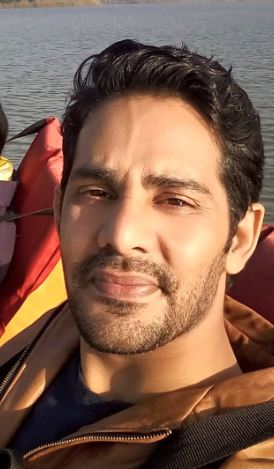
Naresh Bhakar is the Founder and Author at Pharmaguddu.com, bringing his extensive expertise in the field of pharmaceuticals to readers worldwide. He has experience in Pharma manufacturing and has worked with top Pharmaceuticals. He has rich knowledge and provides valuable insights and data through his articles and content on Pharmaguddu.com. For further inquiries or collaborations, please don’t hesitate to reach out via email at [email protected].
